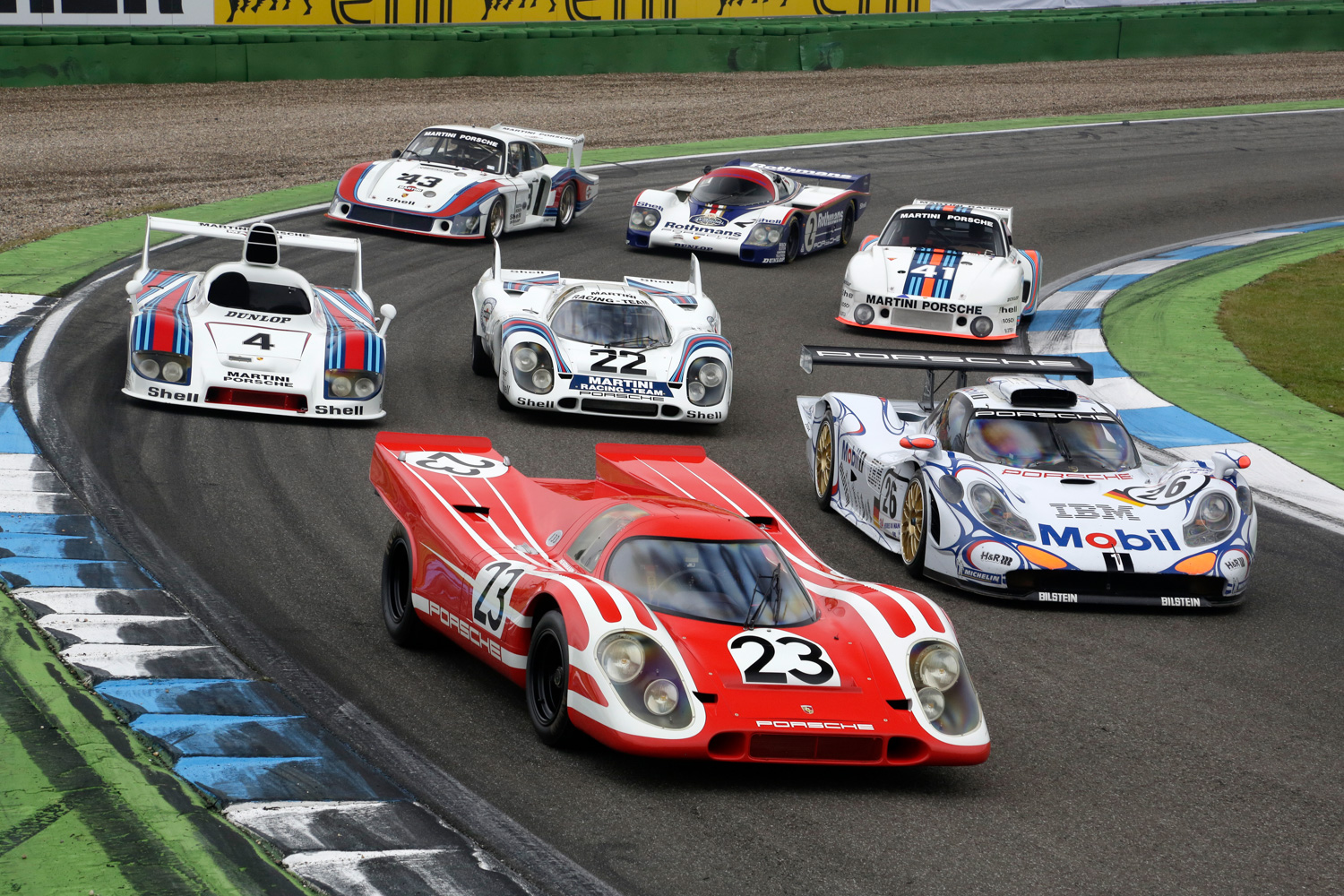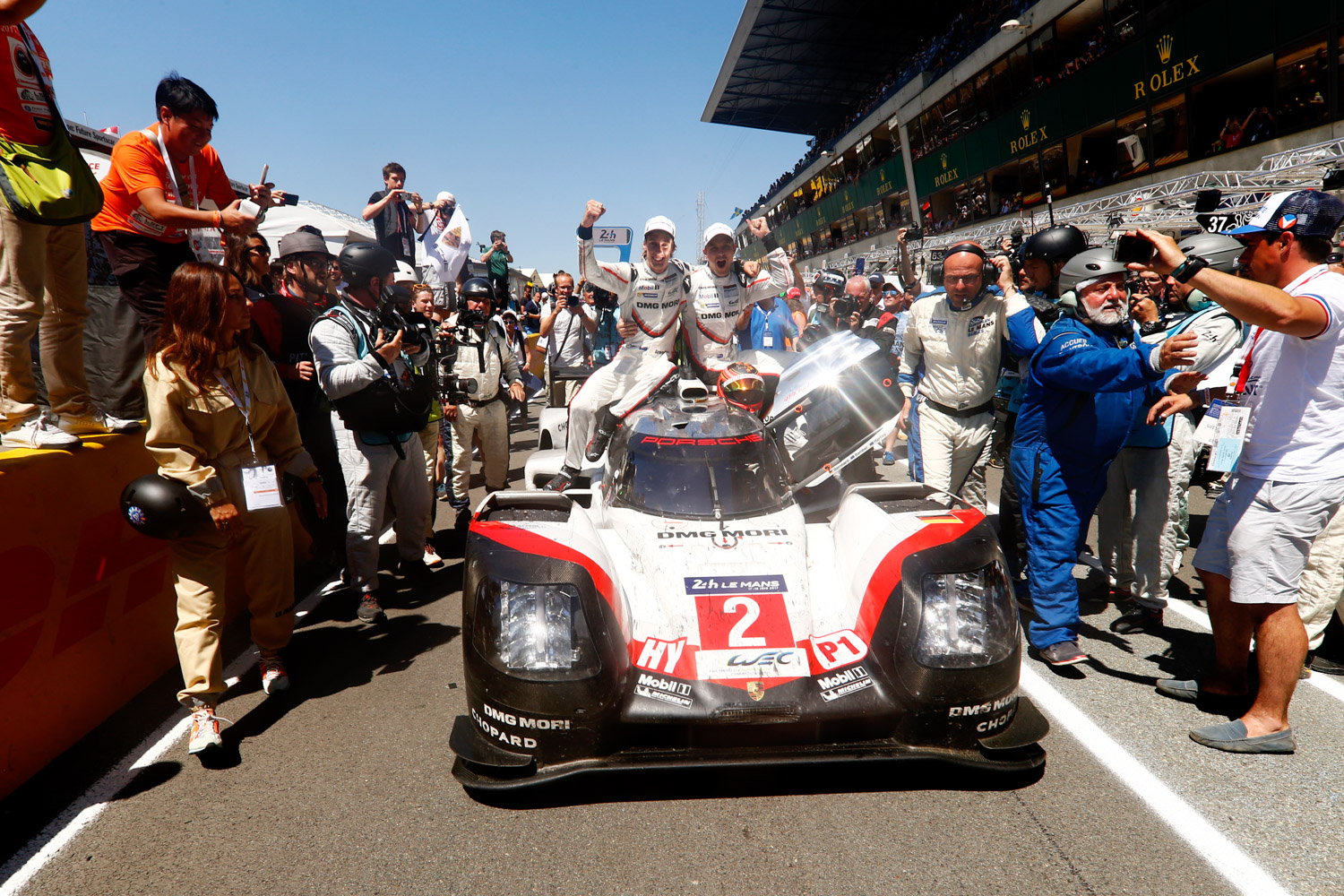Porsche's Executive Board in Germany has given the green-light to the development of an LMDh prototype - meaning that, for the first time since 2017, the sports-car company will once again be competing at the Le Mans 24 Hour, among many other top-ranking endurance events on the global motorsport calendar.
One car, worldwide entries
LMDh will be the new, highest class in both the FIA World Endurance Championship (WEC) and the North American IMSA WeatherTech SportsCar Championship from 2023. These hybrid prototypes are regulated on the basis that they should be highly cost-effective, and the specification for both the hybrid system and the control electronics is standardised. LMDh cars will weigh around 1,000kg and have 680hp, and the only differences between the manufacturers who enter is what they do with the combustion engine part of the package and also the body design - with the framework of the regs, obviously.
This means that manufacturers will be able to compete in endurance races all across the globe with just one vehicle, minimising expenditure. It is for this reason that Porsche's board evaluated the costs involved and realised, after a lengthy evaluation phase, that it would be within the company's interests to enter from 2023 onwards.
'Huge boost'
Oliver Blume, the CEO at Porsche AG, said: "The new LMDh category allows us to fight for overall victories with a hybrid system at the Le Mans, Daytona and Sebring classics - without breaking the bank. The project is extremely attractive for Porsche. Endurance racing is part of our brand's DNA."
And Michael Steiner, board member for Research and Development at Porsche AG, added: "In the medium term, Porsche focuses on three different drive concepts: fully electric vehicles, efficient plug-in hybrids and emotional combustion engines. We want to represent this trilogy in both the development of our cutting-edge road cars and in motorsport. We use the all-electric drive to contest the FIA Formula E as part of our works commitment, and the highly efficient and emotional combustion unit in GT racing. Now, the LMDh class closes the gap for us. There, powerful hybrid drives - like the ones that are mounted in many of our brand's models - go up against each other. If the regulations eventually allowed the use of synthetic fuels, then that would be an even greater incentive for me in terms of sustainability."
Fritz Enzinger, the vice-president of Motorsport for Porsche, was naturally delighted. He said: "I'd like to thank our board of directors for the immense confidence they have in the motorsport strategy we've developed. We hold a record with our 19 outright wins at the 24 Hours of Le Mans and we've climbed to the top podium step many times at major races in the USA. We can continue this tradition with an LMDh vehicle while at the same time keeping costs reasonable. There has been huge interest from other manufacturers. I hope we can pick up where we left off with the famous clashes against many other marques in the Eighties and Nineties. That would give the entire motor-racing scene a huge boost."
Porsche has one of the most successful motorsport histories of any major motoring manufacturer and it has a particularly enviable record in hybrid racing. In 2010 and 2011, the 911 GT3 R Hybrid was the only hybrid racer of its day when it competed at the Nürburgring Nordschleife, but - on a more appropriate theme - the mighty 919 Hybrid competed in the WEC's LMP1 classed from 2014 to 2017, winning Le Mans three times in a row on its way to three manufacturers' and drivers' titles in the series. The 919 Hybrid Evo is also the fastest-ever machine to go around the Nordschleife, just for good measure - so seeing a Porsche LMDh in 2023 is very exciting news indeed.












